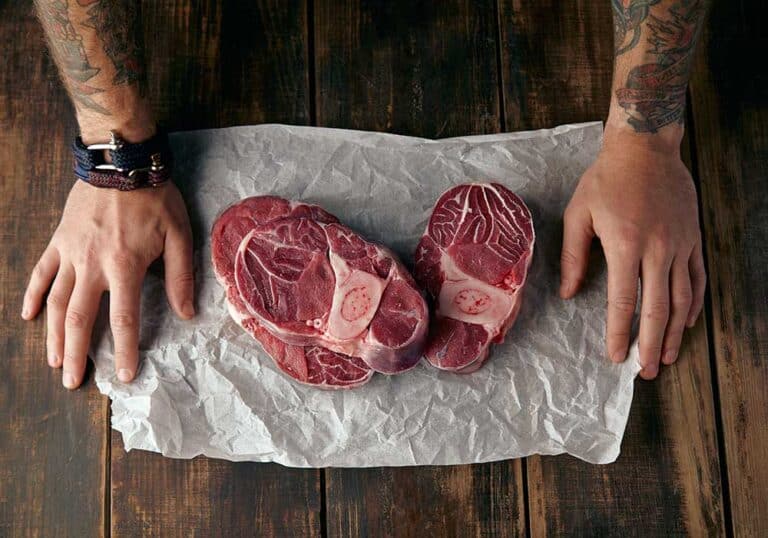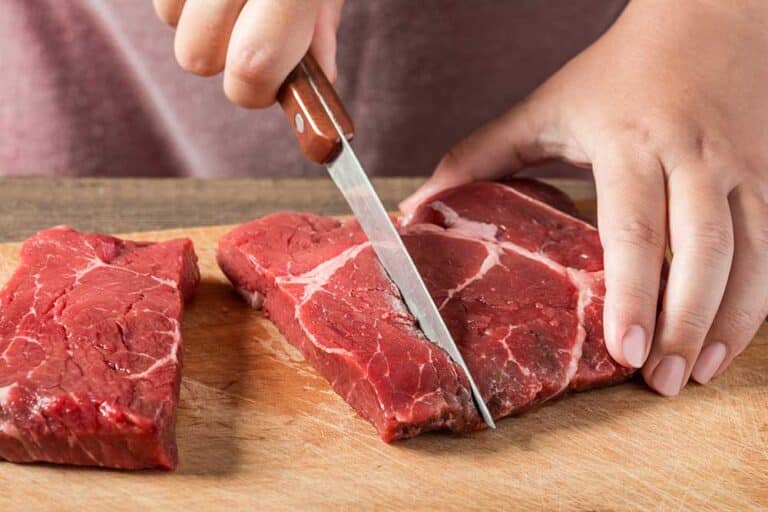Understanding the Carnivore Diet
Definition and Principles
The carnivore diet is a dietary regimen that consists solely of meat, fish, eggs, and certain dairy products. Unlike other low-carb diets such as ketogenic and paleo diets, the carnivore diet aims for zero carbohydrate intake. This means excluding all other foods, including fruits, vegetables, legumes, grains, nuts, and seeds. Such an approach leads to a significant reduction in carbohydrate intake, which can result in the body producing ketones, thereby entering a state known as ketosis. This diet is also known as the “zero carb” diet due to its minimal carbohydrate content (Healthline).
Key Components
The carnivore diet focuses on consuming only animal-based products while excluding plant-based foods. The following table provides a detailed breakdown of the main components of the diet:
| Food Group | Included Foods | Excluded Foods |
|---|---|---|
| Meat | Beef, pork, lamb, game meat | None |
| Fish and Seafood | Salmon, sardines, shrimp | None |
| Poultry | Chicken, turkey, duck | None |
| Eggs | Chicken eggs, duck eggs | None |
| Dairy | Butter, hard cheeses, cream | Milk, yogurt, soft cheeses (due to higher carb content) |
| Beverages | Water, bone broth | Juice, tea, coffee, all other beverages |
Key Principles
-
Zero Carbohydrates: The primary principle of the carnivore diet is the complete elimination of carbohydrates. This means consuming only animal-based foods and avoiding all plant-based foods.
-
High Protein and Fat Intake: The diet heavily relies on high-protein and high-fat foods to provide energy and essential nutrients. It is believed that a high intake of animal fats can help maintain satiety and provide sustained energy.
-
Nutrient-Dense Foods: The diet emphasizes eating nutrient-dense animal products, such as organ meats, which are rich in vitamins and minerals.
-
Exclusion of Anti-Nutrients: By excluding plant-based foods, the diet aims to avoid anti-nutrients that some believe can interfere with nutrient absorption. However, it’s important to note that plant-based diets containing these compounds may have therapeutic properties for various conditions (Center for Nutrition Studies).
Understanding these components and principles is essential for anyone considering this diet. For more information on what you can specifically eat on the carnivore diet, visit our carnivore diet foods list.
Health Implications
Lack of Essential Nutrients
The carnivore diet, which consists predominantly of meat, poultry, eggs, and other animal-based foods, inherently lacks several essential nutrients found in plant-based foods. This elimination of food groups such as fruits, vegetables, grains, legumes, nuts, and seeds results in a diet that is low in fiber, potassium, vitamins A and C, and folate (WebMD).
| Nutrient | Source in a Balanced Diet | Deficiency Concern on Carnivore Diet |
|---|---|---|
| Fiber | Fruits, vegetables, grains | Constipation, digestive issues |
| Vitamin C | Citrus fruits, berries, veggies | Scurvy, weakened immune system |
| Folate | Leafy greens, legumes | Anemia, developmental problems |
| Potassium | Bananas, potatoes, spinach | Muscle weakness, heart problems |
| Vitamin A | Carrots, sweet potatoes, spinach | Vision problems, immune issues |
Risks of Saturated Fat and Cholesterol
Another significant concern with the carnivore diet is the high intake of saturated fat and cholesterol. Since the diet consists almost entirely of animal products, which are commonly high in these components, individuals may be at increased risk for heart disease and other cardiovascular issues. Saturated fats can raise levels of LDL cholesterol, potentially leading to clogged arteries and heart concerns (Healthline).
| Component | Source | Potential Health Impact |
|---|---|---|
| Saturated Fat | Red meat, butter | Elevated LDL cholesterol |
| Cholesterol | Eggs, fatty meats | Increased risk of heart disease |
Concerns About Micronutrient Deficiencies
A diet that excludes all plant-based foods can lead to significant micronutrient deficiencies. Micronutrients such as antioxidants, which are abundant in fruits and vegetables, play a crucial role in neutralizing free radicals and maintaining overall health. The absence of these nutrients may reduce the body’s ability to combat oxidative stress, potentially leading to various health issues (Harvard Health Publishing).
| Micronutrient | Source in Balanced Diet | Deficiency Concern on Carnivore Diet |
|---|---|---|
| Antioxidants | Fruits, vegetables | Increased oxidative stress |
| B Vitamins | Grains, legumes | Energy metabolism issues, mental health |
| Magnesium | Nuts, seeds, leafy greens | Muscle cramps, mental disorders |
For more information on what you can and cannot eat on this diet, check out what can you eat on the carnivore diet. Additionally, if you are looking for meal inspiration, our carnivore diet recipes page offers creative ideas while adhering to the diet’s strict guidelines.
Understanding these health implications is crucial for those considering or following the carnivore diet. Making an informed decision and maintaining awareness of potential nutrient deficiencies and health risks can help manage and mitigate adverse effects.
Potential Side Effects
Digestive Issues
The carnivore diet, which exclusively includes animal products, can lead to several digestive issues due to its lack of fiber. Fiber, a non-digestible carbohydrate, is essential for promoting gut health and facilitating healthy bowel movements (Healthline). The absence of fiber in this diet can result in:
- Constipation: Without fiber, bowel movements can become infrequent and difficult.
- Diarrhea: Some individuals may experience diarrhea as their digestive system adjusts to a high-fat diet.
- Nausea: The drastic dietary shift can cause nausea, especially during the initial stages.
Impact on Gut Health
Gut health can be compromised on a carnivore diet due to the disruption of the gut microbiome. The diet’s exclusion of plant-based foods eliminates beneficial prebiotics and probiotics that support a balanced gut environment. This imbalance may increase the risk of inflammation and other gut-related issues (People’s Choice Beef Jerky).
Challenges in Sustaining the Diet
Maintaining a carnivore diet can be challenging due to several factors:
- Intense Cravings: Strong cravings for carbohydrates and sugar are common as the body adjusts to the new diet (Carnivore Snax).
- Nutrient Deficiencies: The lack of plant-based foods can lead to deficiencies in essential vitamins and minerals, such as Vitamin C and magnesium.
- Social and Practical Challenges: Adhering to a strictly animal-based diet can make social dining and meal planning difficult.
| Reported Side Effects | Prevalence (%) |
|---|---|
| Gastrointestinal Issues | 3.1% – 5.5% |
| Muscular Issues | 0.3% – 4.0% |
| Dermatologic Issues | 0.1% – 1.9% |
| Overall Satisfaction High | N/A |
Figures courtesy NCBI
For individuals considering the carnivore diet, it is crucial to weigh these potential side effects against any purported benefits. Internal links such as carnivore diet benefits, carnivore diet recipes, and what can you eat on the carnivore diet can provide further information for making an informed decision.
Scientific Perspectives
Lack of Research Evidence
The phrase “carnivore diet” did not appear in scientific literature until 2020, indicating a lack of rigorous research on this subject. Despite anecdotal claims of success, there is insufficient scientific evidence to conclusively support the health benefits or safety of the carnivore diet. Amber O’Hearn, who has studied the diet for over a decade, acknowledged the insufficiency of research until she published on the topic in 2020.
Anecdotal Successes vs. Scientific Data
While individual success stories abound, claiming benefits such as significant weight loss and improvements in mental and physical well-being, these accounts remain largely anecdotal (NCBI). Comparatively, there are only a handful of centuries-old case studies and speculative evidence from historical diets, such as those of the Inuit or Mongolian nomads, to provide scientific grounding.
The table below contrasts anecdotal claims with scientific data:
| Aspect | Anecdotal Claims | Scientific Data |
|---|---|---|
| Weight Loss | Significant weight loss reported by many participants | Lack of longitudinal studies to confirm sustained weight loss |
| Mental Clarity | Improved mental clarity and focus | No controlled studies to validate these claims |
| Physical Well-being | Enhanced energy and endurance | Absence of peer-reviewed research supporting these outcomes |
| Chronic Medical Conditions Improvement | Improvement in conditions like type 2 diabetes | Very low-carb diets like keto show some benefits, but no direct evidence for carnivore diet (Health.com) |
Critical Analysis of Diet Claims
An important point to consider is the skepticism around the claims of the carnivore diet’s health benefits. The editor-in-chief of the American Journal of Cardiology stated in 1990 that humans are not natural carnivores and that consuming solely animal flesh could have negative health implications (Center for Nutrition Studies).
Critical analysis of the carnivore diet’s claims necessitates a focus on potential nutrient deficiencies and the diet’s sustainability. A diet missing essential micronutrients from plant sources may not offer a balanced nutritional profile. As such, more scientific scrutiny is needed to validate or refute the purported benefits of the diet.
Given the current lack of comprehensive research, individuals considering the carnivore diet should be particularly cautious. For those interested, exploring a complete carnivore diet meal plan and a carnivore diet foods list can provide more context. Balancing anecdotal successes with scientific caution is key when interpreting the potential side effects of a carnivorous diet and making informed health decisions.
Long-Term Considerations
Nutrient Deficiencies
The carnivore diet is highly restrictive, excluding all plant-based foods and potentially leading to various nutrient deficiencies over the long term. Essential vitamins and minerals, such as vitamin C, fiber, and several phytonutrients, are not found in animal products alone. Registered dietitian nutritionist Kathleen Zelman notes that the diet’s lack of plant foods can contribute to deficiencies, which may result in constant fatigue, low mood, gastrointestinal discomfort, and poor gut health (WebMD).
| Nutrient | Potential Deficiency Effects | Common Sources Excluded |
|---|---|---|
| Vitamin C | Scurvy, weakened immunity | Fruits, vegetables |
| Fiber | Constipation, poor gut health | Whole grains, fruits, vegetables |
| Vitamin K | Blood clotting issues | Leafy greens, vegetables |
| Folate | Anemia, fatigue | Leafy greens, legumes, fruits |
Cholesterol Concerns
Concerns regarding cholesterol levels are particularly relevant for those on the carnivore diet. The high intake of red and processed meat can increase levels of LDL (“bad”) cholesterol, which is linked to an elevated risk of heart disease and stroke (WebMD). While short-term adjustments and careful planning can mitigate these risks, a diet high in saturated fats from animal sources poses long-term challenges.
| Factor | Risk |
|---|---|
| High Saturated Fat Intake | Increased LDL cholesterol levels |
| Lack of Fiber | Poor cholesterol management |
| Elevated LDL Cholesterol | Heart disease, stroke |
Sustainability and Nutritional Balance
Sustaining the carnivore diet in the long term is a significant challenge. The diet’s restrictiveness can induce food cravings and tempt individuals to seek out foods that are not included, such as whole grains, fruits, and vegetables (WebMD). Moreover, this lack of dietary diversity can make it difficult to maintain a balanced nutritional intake.
Balancing one’s diet to ensure all essential nutrients are included requires meticulous planning and, oftentimes, supplementation. Without plant-based foods, achieving a nutritionally complete diet becomes exceedingly difficult. For those seeking a more balanced approach, exploring a broader variety of carnivore diet foods and considering selective supplementation may help mitigate some of these long-term concerns.
For more insights on meal planning and sustainability, visit our pages on carnivore diet meal plan and practical carnivore diet recipes. To see real-world examples of individuals’ experiences, check out the carnivore diet before and after stories and discussions on carnivore diet benefits.
Understanding these long-term considerations is crucial for anyone considering the carnivore diet. Careful evaluation of nutrient needs, cholesterol management, and the overall sustainability of such a restrictive diet can help make informed decisions about embracing this lifestyle.
Personal Experiences and Studies
Survey Findings and Participant Feedback
Numerous surveys and feedback from participants provide valuable insights into the carnivore diet side effects. According to a survey conducted by People’s Choice Beef Jerky, a significant number of individuals reported various experiences while following a carnivorous diet.
| Experience | Percentage of Participants |
|---|---|
| Reported improved digestion | 45% |
| Experienced initial digestive issues | 30% |
| Felt increased energy levels | 50% |
| Reported lack of food variety | 40% |
| Noted initial weight loss | 60% |
Reported Health Benefits
Participants have reported several health benefits from following the carnivore diet. Some common advantages observed include:
- Improved mental clarity: Many individuals claim enhanced cognitive function.
- Increased energy levels: A boost in overall energy has been widely reported.
- Weight loss: Initial weight reduction is a frequent outcome seen by users.
To delve deeper into these benefits, refer to our section on carnivore diet benefits.
Adverse Symptoms and Risks
While there are potential benefits, several adverse symptoms and risks are also associated with the carnivore diet. According to Health.com, some participants have experienced:
- Digestive issues: Such as constipation and diarrhea.
- Increased cholesterol: Heightened levels of LDL cholesterol have been reported.
- Nutrient deficiencies: Concerns over a lack of vitamins and minerals are common.
| Adverse Symptom | Incidence Rate |
|---|---|
| Constipation | 25% |
| Increased cholesterol | 20% |
| Nutritional deficiencies | 15% |
Scientific perspectives on these issues are discussed further in our section on scientific perspectives.
Participant feedback and personal experiences provide a comprehensive view of what to expect when adopting this dietary approach. Always consult with a nutrition specialist before making significant dietary changes to ensure it aligns with individual health needs.
For a detailed list of foods involved in this diet, visit carnivore diet foods list and for meal planning guidance check out carnivore diet meal plan.
- About the Author
- Latest Posts
Johnnie D. Jackow Sr., the founder and CEO of Total Body Fitness, Worldwide, has a long-standing career in the fitness industry. He began as a certified personal trainer in the mid-90s and soon after authored his first weight loss book in 1998. This led to the launch of Total Body Fitness, Nationwide in the USA at the same time. Johnnie gained recognition as the fitness guru of his time, running infomercials on local TV late at night in Houston, Texas. Over the years, he has helped more than 40,000 individuals from all over the world achieve their health and fitness goals. With over 60,000 hours of documented training in integrative functional medicine, he completed his PhD in human physiology in 2010. His primary objective is to assist people in reaching their health and fitness goals through alternative approaches rather than relying solely on conventional medicine and pharmaceutical drugs. Today, with almost three decades of experience under his belt, Johnnie continues to be a leader in health and fitness.








